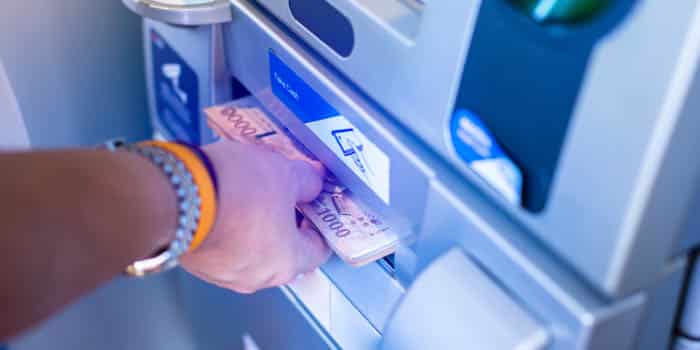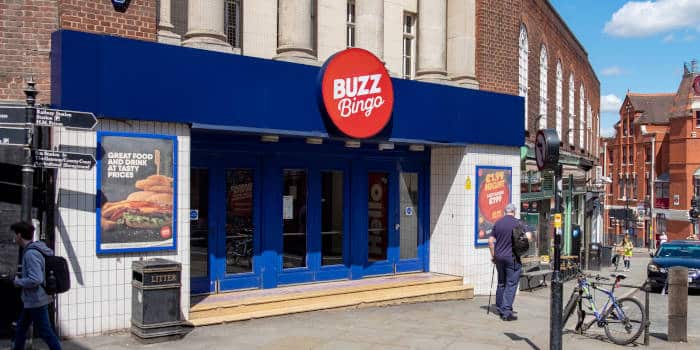- Casino
- By State
- Alabama
- Alaska
- Arizona
- Arkansas
- California
- Colorado
- Connecticut
- Delaware
- Georgia
- Florida
- Hawaii
- Idaho
- Illinois
- Indiana
- Iowa
- Kansas
- Kentucky
- Louisiana
- Maine
- Massachusetts
- Maryland
- Michigan
- Minnesota
- Mississippi
- Missouri
- Montana
- Nebraska
- Nevada
- New Hampshire
- New Jersey
- New Mexico
- New York
- North Carolina
- North Dakota
- Ohio
- Oklahoma
- Oregon
- Pennsylvania
- Rhode Island
- South Carolina
- South Dakota
- Tennessee
- Texas
- Utah
- Vermont
- Virginia
- Washington
- West Virginia
- Wisconsin
- Wyoming
- By State
- Slots
- Poker
- Sports
- Esports
UKGC Acknowledges Cashout Issues as “Number One Topic” Raised by Bettors
The UKGC has touched on the topic of withdrawal problems raised by bettors in the light of White Paper consultations

While players’ ability to cash out funds from their accounts should never be impeded by operators, certain restrictions regarding deposits may be applied, said the United Kingdom Gambling Commission’s director of communications, Lucy Denton.
While the commission is busy carrying talks with industry stakeholders regarding the recommendations issued by the Gambling Act review, it is also keeping an eye on the significant number of withdrawal complaints recorded by the Contact Center on a yearly basis.
Thousands of Withdrawal Complaints
The regulator’s Contact Centre records around 6,000 phone calls throughout the year, with a plethora of topics ranging from licensing to matters related to the gaming sector itself. However, most of the complaints are aimed at delayed cashout issues, as Denton further explained in a blog post.
Consumers use the direct line to express their frustration when discovering that their withdrawal requests will take a lot longer than anticipated to become available to them or that they have been asked to send various forms of information to operators, including identity verification documents prior to having their cashout requests to be processed.
Denton also acknowledged the existence of delays occurring for valid reasons when processing payments, explaining that these were “beyond a gambling firm’s control.” For example, when players’ cards have expired or when the delay is caused by consumers’ bank procedures.
Moreover, all casino operators are obligated to prove their businesses are not in receipt of any proceeds of crime while always acting on any concerns they may have. This translates to the need for operators to withhold certain withdrawals while running their checks.
Around 99% of Customer Withdrawal Requests, Processed within 24 to 48 Hours
According to data from some of the most successful gambling operators, around 99% of all cashouts are approved, processed, and completed within 24 to 48 hours of the time of request.
Nonetheless, in the context of more than 20 million monthly gamblers, a 1% percent of delayed cashouts can translate to many frustrated customers.
The UKGC’s Licence Conditions and Codes of Practice (LCCP) features a number of provisions that state all operators must “treat their customers fairly”. This includes their withdrawal policies.
Nonetheless, the large number of complaints related to withdrawals has convinced the regulator to upgrade its LCCP in 2019 to explain that operators should verify their customers’ identities prior to allowing them to gamble.
The LCCP also mentions that any information deemed necessary by operators to check their identity should not be asked as a mandatory condition of withdrawal acceptance, especially in case operators could have “reasonably requested that information earlier.”
Plus, any operator requests checking if customers are at risk of gambling-related harm should not be used to delay or stop players from cashing out.
Denton added that the commission will keep a close eye on these complaints to gain a better understanding of consumers’ experiences while using them to shape their work in the future and checking operators’ terms and practices to determine if there is a need to improve their framework.
In May, the commission announced a plan spanning between 2023 and 2026 that would assist them with obtaining the necessary evidence that will help better protect customers and implement effective changes where necessary.
In June, the UKGC published a report showcasing the gambling behavior changes recorded as a response to environmental factors in the country, highlighting an increase in gross gaming yield.
Related Topics:
After finishing her master's in publishing and writing, Melanie began her career as an online editor for a large gaming blog and has now transitioned over towards the iGaming industry. She helps to ensure that our news pieces are written to the highest standard possible under the guidance of senior management.
Must Read
Industry
July 8, 2025
Trump’s Gambling Tax Cap Draws Divided Opinions
More Articles



Casino
July 10, 2025
ASA Strikes Down Ad Complaint Against Buzz Bingo

Industry
July 8, 2025
Trump’s Gambling Tax Cap Draws Divided Opinions















